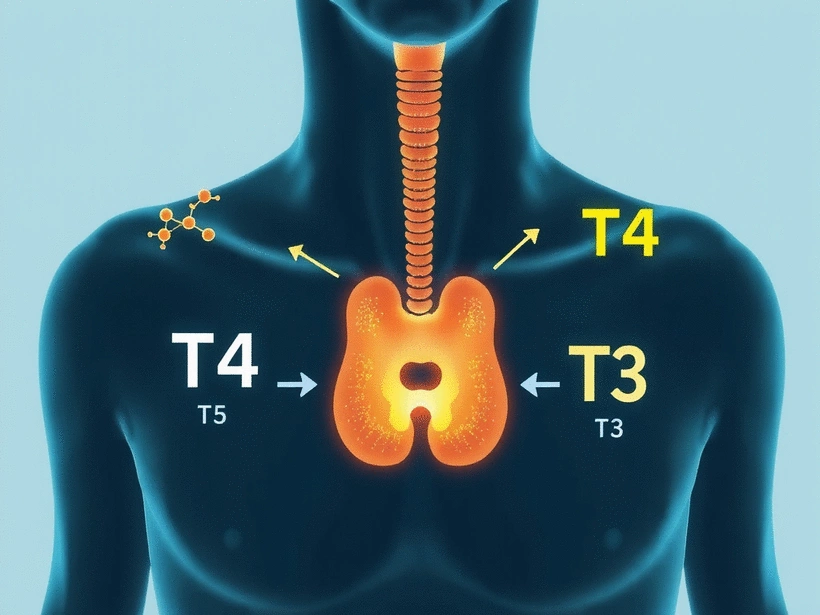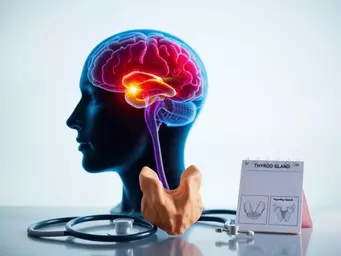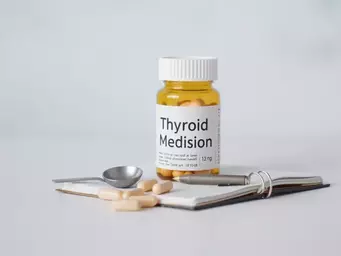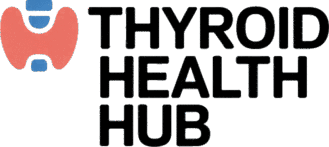Understanding T4 to T3 Conversion

Understanding your thyroid health is crucial, especially if you experience symptoms like fatigue or weight changes. With the right knowledge about thyroid hormones, you can take proactive steps towards better well-being. Here’s what you can learn about T4 and T3:
What You Will Learn
- T4 vs. T3: T4 (thyroxine) is the inactive form, while T3 (triiodothyronine) is the active hormone that regulates metabolism.
- Importance of Conversion: Efficient conversion of T4 to T3 is vital for maintaining energy, mood, and metabolic function.
- Role of TSH: High TSH levels indicate an underactive thyroid, which can lead to symptoms like fatigue and weight gain.
- Next Steps: Consult healthcare professionals, monitor symptoms, and make informed lifestyle choices to manage thyroid health effectively.
Understanding the Dynamics of Thyroid Hormones
The visual below illustrates the distinct roles of T4 and T3 hormones, their intricate conversion process, and the critical regulatory function of TSH in maintaining overall thyroid health.
Primarily produced by the thyroid gland, T4 is considered the inactive form. It contains *four* iodine atoms and acts as a crucial reservoir for thyroid hormone, ready to be converted into its active counterpart as needed.
T3 is the active thyroid hormone that directly influences metabolism, energy levels, and mood. It contains *three* iodine atoms and is largely converted from T4 in peripheral tissues.
Efficient conversion of T4 to T3 is vital for health. Inefficient conversion can lead to hypothyroid symptoms even with normal T4 levels, impacting energy, mood, and metabolism.
- ✓ Energy Levels
- ✓ Mood Regulation
- ✓ Metabolic Function
Produced by the pituitary gland, TSH signals the thyroid to release T4 and T3. Its levels provide a key indicator of thyroid function, being high in hypothyroidism and low in hyperthyroidism.
- ▲ High TSH: Underactive Thyroid
- ▼ Low TSH: Overactive Thyroid
Understanding Thyroid Hormones: The Role of T4 and T3
Understanding the function of thyroid hormones can feel daunting, but it's essential for managing your thyroid health, especially if you're navigating conditions like hypothyroidism. The two primary hormones produced by the thyroid gland are T4 (thyroxine) and T3 (triiodothyronine). These hormones are vital for regulating metabolism, energy levels, and overall bodily functions. Let's break down what T4 and T3 are and why they matter.
T4 is considered the inactive form of thyroid hormone, while T3 is the active form that your body uses. It's fascinating how T4 acts as a reservoir that gets converted into T3 when your body needs it. Have you ever wondered why some people with thyroid issues feel so low on energy? This dysfunction often stems from imbalances in these hormones.

What are T4 and T3? A Brief Overview of Thyroid Hormones
To grasp the importance of T4 and T3, it's crucial to know their roles. T4 is produced in greater quantities by the thyroid gland, but it's T3 that delivers the punch when it comes to metabolic activity. In fact, around 80% of T3 is derived from the conversion of T4 in the tissues of the body. Research from sources like Academic.oup.com highlights the intricate mechanisms and significance of this conversion process.
- T4 (Thyroxine): The primary hormone produced by the thyroid; it has four iodine atoms.
- T3 (Triiodothyronine): The more active form of thyroid hormone, made from T4, containing three iodine atoms.
- Role in Metabolism: Both hormones help regulate your body's energy expenditure and impact everything from weight management to mood.
Understanding these hormones is the first step in recognizing how they affect your daily life. If you've been feeling sluggish or experiencing unexplained weight changes, it might be time to look at your thyroid function.
Why Is Thyroid Hormone Conversion Important for Health?
The conversion of T4 to T3 is a critical process that directly influences your health. If this conversion is inefficient, you might experience symptoms of hypothyroidism, even if your T4 levels appear normal. This is why monitoring not just the levels of T4, but also the conversion to T3, is so vital.
- Energy Levels: Proper conversion helps maintain your energy throughout the day.
- Mood Regulation: T3 is essential for mental clarity and emotional stability.
- Metabolic Function: Efficient hormone conversion ensures your metabolism functions optimally.
As someone passionate about patient education, I encourage you to understand the importance of this conversion process. Recognizing symptoms early can lead you to seek the appropriate interventions. Further insights into the complexities of thyroid hormone metabolism can be found in studies published on Frontiers in Endocrinology.
The Impact of Thyroid Stimulating Hormone (TSH) on Thyroid Function
Thyroid Stimulating Hormone (TSH) plays a pivotal role in regulating the production of T4 and T3. Produced by the pituitary gland, TSH signals your thyroid to release these hormones into the bloodstream. If TSH levels are too high, it indicates that your body is trying to stimulate the thyroid due to low hormone levels — often a sign of hypothyroidism. A genetic flaw can also cause problems for many with hypothyroidism, as noted by UChicagoMedicine.org.
- High TSH Levels: Can indicate an underactive thyroid, leading to fatigue, weight gain, and depression.
- Low TSH Levels: May suggest an overactive thyroid, contributing to anxiety, irritability, and weight loss.
Monitoring your TSH levels, alongside T4 and T3, gives you a clearer picture of your thyroid health. At Thyroid Health Hub, we emphasize the importance of comprehensive testing to understand your condition better. Knowledge is power!

Pro Tip
Did you know? Integrating selenium and iodine-rich foods into your diet can significantly enhance your thyroid function? Foods like fish, eggs, and nuts can help support the conversion of T4 to T3, promoting optimal energy levels and metabolism. Consider incorporating these into your meals for better thyroid health!
Frequently Asked Questions About Thyroid Health
Here are some common questions about T4, T3, and thyroid health:
- What is the main difference between T4 and T3?
- T4 (thyroxine) is the inactive, storage form of thyroid hormone, while T3 (triiodothyronine) is the active form that directly influences metabolism, energy, and mood. T4 is converted into T3 in the body's tissues.
- Why is the conversion of T4 to T3 so important?
- Efficient conversion of T4 to T3 is crucial because T3 is the hormone that performs most of the thyroid's functions in the body. Inefficient conversion can lead to symptoms of hypothyroidism even if T4 levels are normal, affecting energy, mood, and metabolic function.
- What does a high TSH level indicate?
- A high TSH (Thyroid Stimulating Hormone) level typically indicates an underactive thyroid (hypothyroidism). This means the pituitary gland is working harder to stimulate the thyroid to produce more hormones because T4 and T3 levels are too low.
- Can I have symptoms of hypothyroidism even with normal T4 levels?
- Yes, it's possible. If your body isn't efficiently converting T4 to T3, you might experience hypothyroid symptoms even with normal T4 levels. This highlights the importance of comprehensive thyroid testing, including T3 levels.
- What are some practical steps to manage my thyroid health?
- Practical steps include consulting healthcare professionals for personalized guidance, monitoring your symptoms regularly, making informed lifestyle choices (such as dietary adjustments), and understanding your thyroid function test results.
Summarizing Key Insights on Thyroid Hormone Conversion
Understanding the conversion of T4 to T3 is crucial for your overall health, especially if you are managing hypothyroidism. These thyroid hormones play a pivotal role in regulating metabolism, energy levels, and even mood. If the conversion process is inefficient, it can lead to various health issues. So, what makes this conversion so important?
- Energy Production: T3 is the active hormone that energizes your cells.
- Metabolic Regulation: Proper hormone balance is vital for maintaining a healthy metabolism.
- Mood Stability: An adequate T3 level supports mental well-being and emotional health.
By grasping the importance of T4 to T3 conversion, you empower yourself to make informed decisions regarding your thyroid health. This knowledge is key to advocating for your health, whether it involves lifestyle changes or discussing treatment options with your healthcare provider.
The Importance of Understanding T4 to T3 Conversion for Overall Health
The conversion process of thyroid hormones directly impacts your health and quality of life. It’s essential to recognize that without efficient conversion, your body may not receive the energy it needs to function optimally. If you’ve ever felt sluggish or experienced mood swings, these could be signs that your thyroid hormones are not converting effectively. Taking charge of your health means being aware of how these hormones work together!
As you dive deeper into your thyroid health journey, remember that you are not alone. At Thyroid Health Hub, we provide resources and education to help you understand your thyroid function better. The more you know, the better equipped you’ll be to manage your condition.
Next Steps: Taking Charge of Your Thyroid Health
Now that you have a clearer understanding of the significance of T4 to T3 conversion, what’s next? Taking charge of your thyroid health is a proactive step you can take towards a better quality of life. Here are some practical next steps you can consider:
- Consult Healthcare Professionals: Seek personalized guidance to tailor your management plan.
- Monitor Your Symptoms: Keep track of any changes to discuss with your doctor.
- Make Informed Lifestyle Choices: Consider dietary adjustments that support your thyroid function.
Engaging with a healthcare provider can offer insight into how best to support your thyroid health. They can provide recommendations tailored to your individual needs, ensuring you feel empowered and informed in your health journey.
Consulting Healthcare Professionals for Personalized Guidance
When it comes to managing your thyroid health, consulting with your healthcare professional is crucial. They can offer advice tailored specifically to your health situation, which can make all the difference in your treatment outcomes. Have you scheduled your annual check-up recently? This can be a great opportunity to discuss your thyroid health, ask questions about your symptoms, and get the support you need!
Monitoring Your Symptoms and Making Informed Lifestyle Choices
It’s essential to keep track of how you feel day-to-day. Monitoring symptoms can help you identify patterns and triggers that may affect your thyroid function. Consider keeping a health journal where you can jot down:
- Your energy levels
- Changes in weight
- Mood variations
- Dietary habits
This record can be invaluable for discussions with your healthcare provider and can help you make informed lifestyle choices that promote better thyroid health.
Understanding Thyroid Function Tests: What to Expect
When you visit your healthcare provider, they will likely recommend thyroid function tests to assess your hormone levels. Expect to undergo blood tests that measure TSH, T4, and T3 levels. Here’s what you can anticipate:
- Blood Sample: A simple blood draw to measure hormone levels.
- Test Results: Typically available within a few days.
- Follow-Up Consultation: Discussion of results and potential next steps based on your levels.
Understanding these tests is key to navigating your thyroid health journey. You’ll be better prepared to discuss the results with your healthcare provider and explore any necessary adjustments to your management plan.
Recap of Key Points
Here is a quick recap of the important points discussed in the article:
- T4 and T3 Importance: T4 (thyroxine) is the inactive form, while T3 (triiodothyronine) is the active form crucial for metabolism and energy levels.
- Conversion Process: Efficient conversion of T4 to T3 is essential for maintaining energy, mood stability, and optimal metabolic function.
- TSH Role: Monitoring TSH levels helps assess thyroid function and can indicate hypothyroidism or overactive thyroid conditions.
- Next Steps: Consult healthcare professionals, monitor symptoms, and make informed lifestyle choices to support thyroid health.
- Test Understanding: Familiarize yourself with thyroid function tests to better navigate your health journey.








